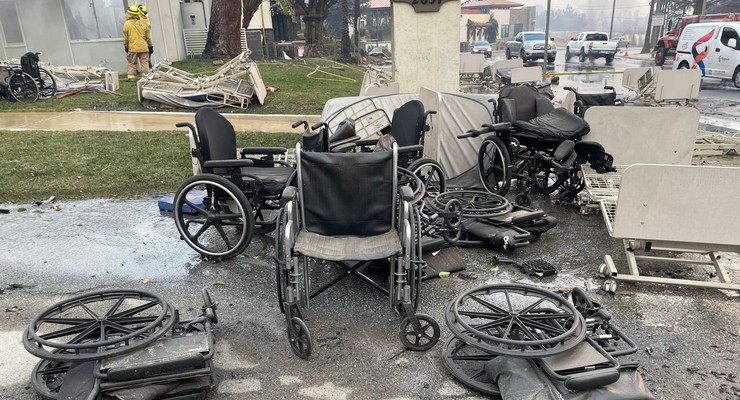
As part of Pasadena’s ongoing efforts to combat the city’s seemingly intransigent homeless problem, the Planning Department has begun discussions on the process of creating a new city-wide Zoning Code amendment that would allow permanent housing options on religious facility-owned properties.
City Planning Director David Reyes, Principal Planner David Sanchez, and Planner Martin Potter led an animated online discussion Tuesday to update the community on the proposed amendment.
The meeting was attended by more than 100 interested members of the housing community, developers, and members of faith-based groups.
An informal poll taken prior to the meeting’s official start showed strong support for the amendment.
In answer to the question, “How do you feel about allowing affordable housing on religious property?” 85% of the participants were “generally in support,” and only four percent of participants said they were “generally opposed.”
Another 12% said that they would be “supportive with appropriate conditions.”
According to the presentation, properties owned by religious facilities typically have large underutilized parking areas, thus a number of religious organizations have begun discussions related to new housing developments on their properties.
Potter cited two recent California examples of the effect of such a zoning amendment: In San Diego, Clairemont Lutheran Church seeks to build approximately 12 low- income homes on existing parking lots, after the City eliminated parking standards based on pew count and reduced overall requirements.
St. Paul’s Episcopal Church in Walnut Creek in Northern California developed 45 low-income units including community centers with services for the homeless and working poor on-site.
Meanwhile, State Assembly Bill AB 1851, adopted on September 28, sets new parking standards for housing on land owned by religious institutions, reducing the required number of spaces. This would free up land to be used for housing development. The bill also amends the Density Bonus Law in a number of ways, most notably, increasing the maximum density bonus from 35% to 50%. If housing is allowed on a site, a 50% density bonus will now be an option.
A density bonus is an increase in the overall number of housing units that a developer may build on a site, in exchange for including more affordable housing units within the project.
A number of local housing advocates spoke in favor of the proposed amendments, offering praise and suggestions.
Phil Burns of the Greater Pasadena Affordable Housing Group, which supports the amendment, remarked that the new amendment should allow for “enough density” to support a larger number of developments in a neighborhood.
“What we are advocating is for all affordable housing on religious facility projects to be allowed at at least 32 du/ac so that it can be feasible to build,” Burns said in an email.
Housing advocate Bert Newton, responding to an anonymous attendee who voiced concerns about affordable housing diminishing the value of “single-family neighborhoods,” said, “A neighborhood that combines different types of housing, with mixed-use, multi-family, and single families with ADUs, makes for a much richer neighborhood.”
According to Newton, 17 Pasadena churches have already offered land for the development of housing. This could create between 1100 and 1200 units of new housing, he said.
The Planning Department has also identified nearly 50 applicable religious facility sites City-wide, according to their presentation. No specific locations have been targeted yet, however, said Sanchez.
Former Pasadena City Manager Cynthia Kurtz also weighed in on the proposed amendment, saying “This points Pasadena in a very good direction.”
Following the completion of community meetings, the Planning Department will prepare the Zoning Code Amendment and then return to the Planning Commission for recommendation. If approved by the Planning Commission, the proposed amendment will be presented to the City Council for adoption.


















